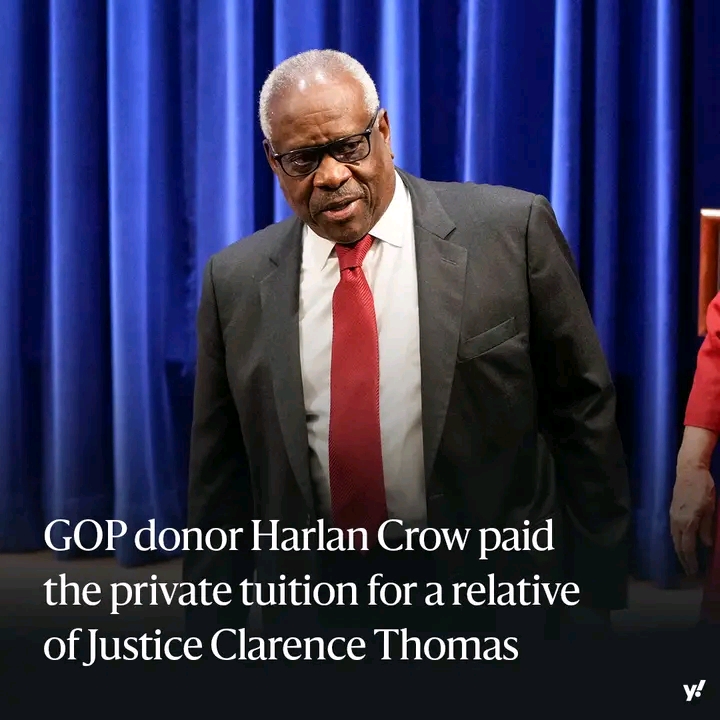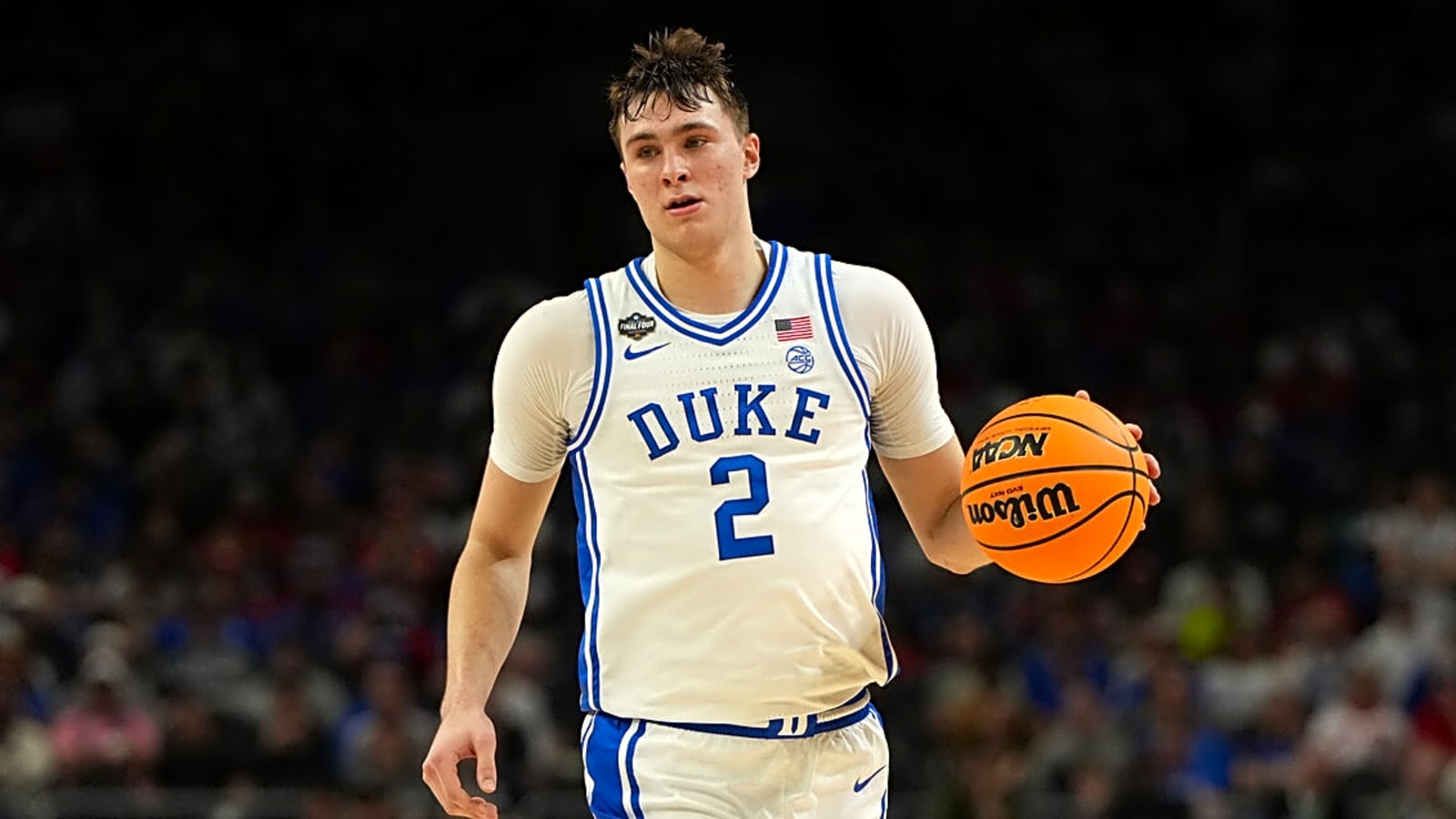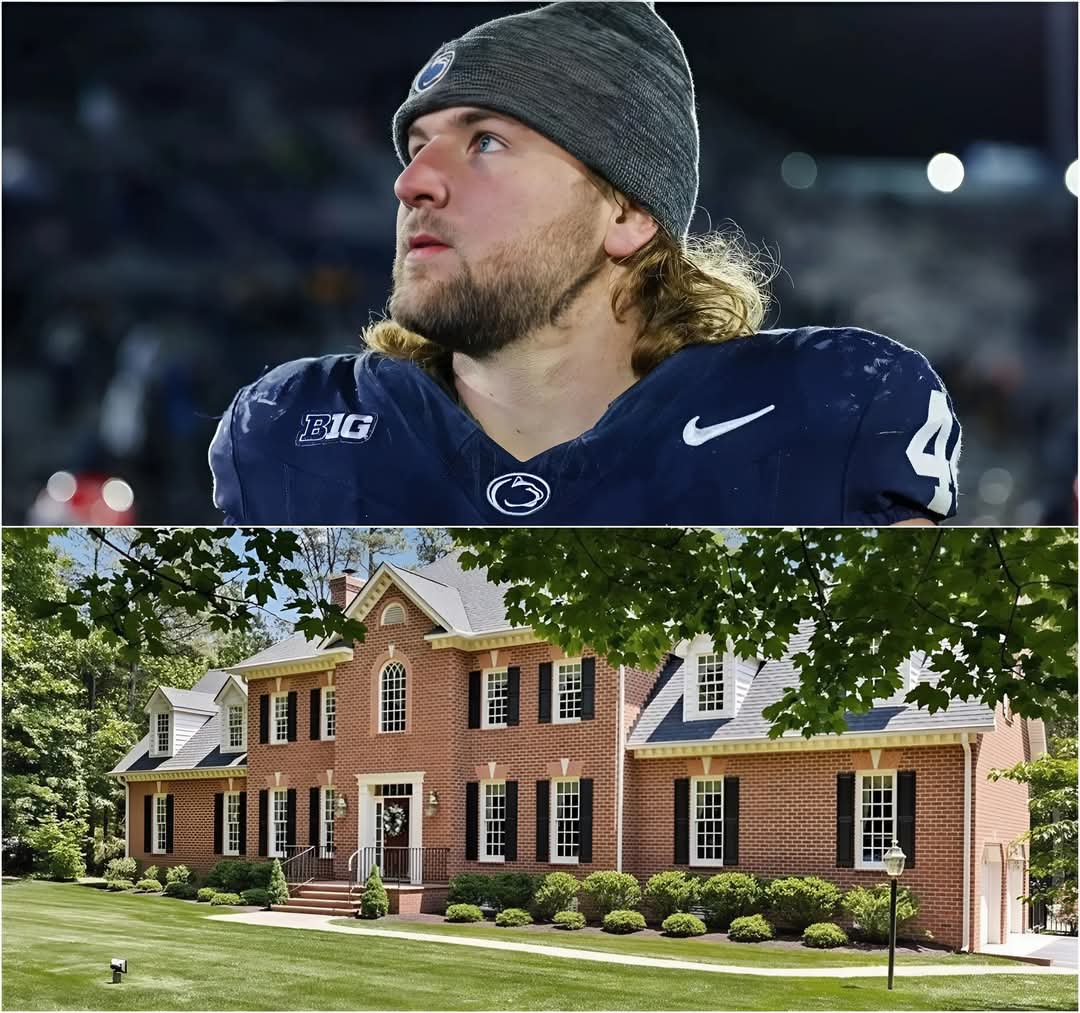COURT UNDER FIRE: Report Reveals Harlan Crow Covered Boarding School Fees for Justice Thomas’ Relative — Disclosure Rules Questioned
In a development that has reignited debate over ethics and accountability within the nation’s highest court, new revelations indicate that Republican megadonor Harlan Crow quietly paid private boarding school tuition for the grandnephew of Supreme Court Justice Clarence Thomas. The report, published by ProPublica, adds another layer to the growing list of financial connections between the billionaire donor and the longtime conservative justice—connections that have increasingly drawn criticism and demands for reform in judicial transparency.
According to ProPublica’s findings, Crow covered tuition costs exceeding $6,000 per month for Thomas’s grandnephew while the boy attended Hidden Lake Academy, an elite private boarding school in Georgia. At the time of these payments, Justice Thomas had taken legal custody of his grandnephew and publicly described him as being “raised as a son.” Despite this financial support, the tuition payments were never disclosed in Thomas’s annual financial filings, which are required of all federal judges to provide the public with insight into their outside income, gifts, and potential conflicts of interest.
The report notes that the payments from Crow were part of a pattern of generosity that extended far beyond the tuition assistance. Over the years, Crow has financed luxury vacations for Thomas and his wife, Ginni Thomas, including private jet flights, lavish cruises, and stays at exclusive resorts. Crow also purchased three Georgia properties from Thomas and his family—transactions that similarly went unreported on Thomas’s disclosure forms, despite the clear expectation that such deals should be publicly listed to maintain trust in the judiciary’s integrity.
Critics argue that these repeated omissions raise serious questions about whether Justice Thomas has violated disclosure laws and the ethical standards that govern Supreme Court justices. While lower federal judges are bound by strict codes of conduct, the U.S. Supreme Court operates without a formalized, enforceable ethics code, leaving compliance largely up to the discretion of individual justices. This loophole has fueled widespread public concern and bipartisan calls for reform, especially as justices wield enormous influence over the nation’s laws while remaining shielded from much of the scrutiny applied to other public officials.
In response to the report, Thomas’s attorney Mark Paoletta issued a statement defending both his client and Harlan Crow. Paoletta contended that the tuition payments were not subject to disclosure, arguing that the ethics rules do not require justices to report gifts or payments related to a nephew or similar family relation. He further dismissed ProPublica’s reporting as politically motivated, saying, “This malicious story shows nothing except that the Thomases and the Crows are kind, generous, and loving people who tried to help this young man.”
Still, many observers see the matter differently. Ethics experts and watchdog groups argue that even if the payments technically fall into a gray area under current rules, they nonetheless represent a clear conflict of interest and a violation of the spirit of transparency that is supposed to guide the judiciary. When wealthy individuals with strong political ties offer personal financial support to sitting justices, they warn, it risks eroding public confidence in the impartiality of the court’s decisions.
ProPublica said it reviewed bank statements showing at least one month’s tuition payment in July 2009 from Harlan Crow for Thomas’s grandnephew, suggesting that Crow may have financed the boy’s entire time at the school. The report also cited Christopher Grimwood, a former administrator at Hidden Lake Academy, who confirmed that Crow paid the tuition for as long as the student was enrolled there. While the total amount of money involved remains unclear, it likely added up to tens of thousands of dollars over time—an extraordinary gesture from a man who has also spent millions supporting conservative causes and candidates.
The revelation fits into a broader pattern of scrutiny surrounding the relationship between wealthy benefactors and Supreme Court justices. Crow, a Texas real estate magnate and major donor to Republican campaigns, has been a personal friend of Thomas for decades. Both men have described their relationship as rooted in shared values and mutual respect rather than politics. Yet the nature of their friendship—punctuated by gifts, financial transactions, and luxurious travel—has sparked persistent questions about the influence of money and privilege on America’s most powerful court.
This latest story comes amid growing concern that the Supreme Court lacks adequate oversight to prevent or address potential ethical breaches. In recent years, members of Congress and public advocacy groups have proposed creating an independent ethics body or requiring the justices to adhere to a formal code similar to that applied to other federal judges. Supporters of reform argue that the Court’s legitimacy depends on the public’s faith in its fairness, and every undisclosed gift or financial tie threatens to undermine that trust.
Defenders of Thomas, however, maintain that the justice has done nothing wrong. They emphasize that the payments were made to support a child under Thomas’s care, not to influence judicial decisions. They also point to the absence of clear legal requirements covering such circumstances, saying critics are holding Thomas to a standard that does not exist in written law.
Yet for many Americans, the distinction between technical legality and ethical propriety is precisely what’s at stake. The fact that such financial entanglements are possible—let alone unreportable—suggests to critics that the system is broken. As one ethics scholar put it, “When the public sees billionaires secretly paying for private school tuition for relatives of Supreme Court justices, the damage to institutional credibility is immense, regardless of intent.”
In the political arena, the revelations have amplified calls for Congress to tighten judicial ethics rules. Lawmakers from both parties, though divided on the details, agree that the Court’s opacity has become untenable. Some have urged the Department of Justice to review whether Thomas’s non-disclosures violate federal ethics laws. Others have called for greater transparency not just from Thomas but from all nine justices, arguing that the institution’s reputation cannot withstand continued reports of undisclosed gifts and financial favors.
Meanwhile, Harlan Crow has remained largely silent on the matter, apart from statements asserting that his actions were motivated purely by friendship and compassion. Crow has said in the past that he and his wife have long supported educational causes and have helped numerous students over the years. Still, the fact that one of those beneficiaries was the grandnephew of a sitting Supreme Court justice—and that the payments were kept from public view—has made this case uniquely controversial.
As the story continues to unfold, the Supreme Court finds itself at the center of a credibility crisis. While no formal investigation has yet been launched, public trust in the institution appears to be wavering. Polls in recent years have already shown declining confidence in the Court’s impartiality, particularly amid contentious rulings on issues like abortion, voting rights, and campaign finance. This latest report, many observers say, will only deepen perceptions that the justices operate above the rules that govern everyone else.
For now, Justice Clarence Thomas has not publicly commented on the tuition payments or the broader questions surrounding his relationship with Harlan Crow. Yet the scrutiny is unlikely to fade anytime soon. Each new revelation strengthens the call for greater transparency, accountability, and ethical reform at the highest level of the American judiciary.
In the words of one legal analyst, “This isn’t just about one justice or one donor—it’s about whether Americans can still believe that the Supreme Court represents the law, not the interests of the powerful.”



